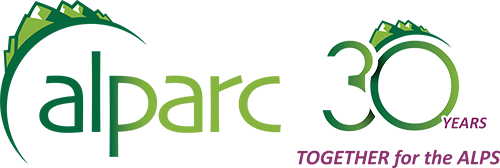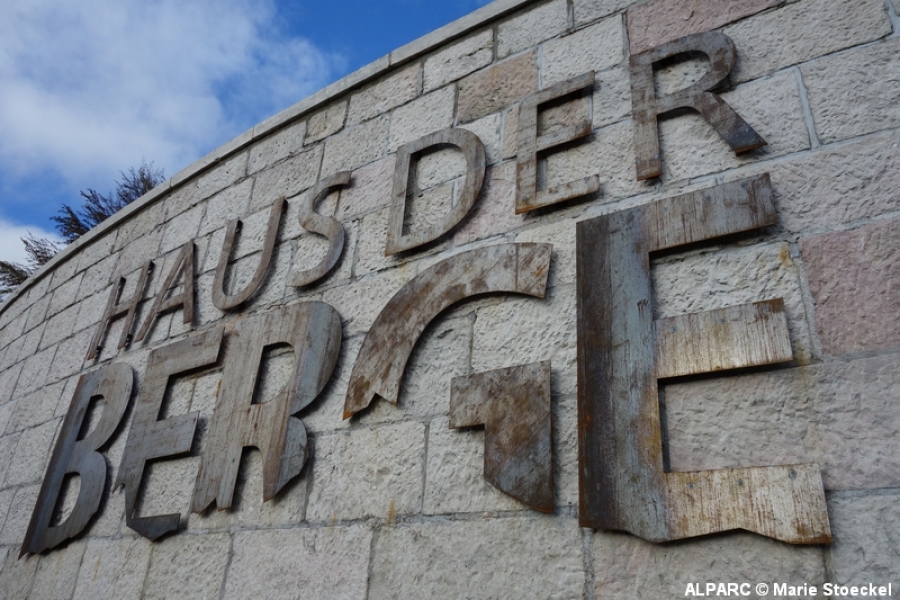The 3rd “Mountain Environment Education in the Alpine Protected Areas” international Workshop was held from 21st to 23rd October 2014, jointly organised by ALPARC and REEMA (the French Network of Alpine Mountain Education) with the Berchtesgaden (D) National Park. Andrea Heiss and her team from the Environment Education department welcomed delegates in their education centre and in the new “Haus der Berge” information centre.
The working group assembled around 20 people responsible for environment education from various Alpine protected areas, coming from Germany, Austria, France, Italy, Liechtenstein, Slovenia and Switzerland. The delegates, many of whom have known each other for a long time in this group, were happy to meet again to exchange on their practices and experiences, and to work towards the development of common actions and projects between the protected areas. Among the latter : the creation of a common field teaching tool , the development of a collective protected areas event to bring young people to the mountains as well as other projects for the coming years.
Days of work and discovery, in particular a guided tour of the new “Haus der Berge” information centre (the “Mountain House”, inaugurated in 2013) and of the park education centre: a welcoming, ecological space (a passive building), adapted to take groups and classes and for the organisation of teaching activities aimed especially at younger children and based on the notion of discovery and learning through experience. Moreover, the delegates were able to try out some workshops usually reserved for children! The activities offered in the education centre are more than complemented by outdoor activities.
Throughout the workshop, the importance and necessity of strengthening the links between young people and the mountains, as well as the key role played by the protected areas in making young people aware of the need to protect nature, were indeed highlighted.
One session of the Workshop was dedicated to sharing experiences concerning the activities aimed at the young people and children living in the Alps, either in the parks or in areas bordering on them, and who, paradoxically, often do not really know the mountains and “their” park.
Finally, it was also the opportunity to present the joint online working space “ALPARC extranet”, which, by the end of the year, will offer a platform given over entirely to the work of the Education group. This online tool, created to promote remote working on common projects and the exchange of ideas, resources and good practices, will later be also made available to groups working on other themes within ALPARC.




